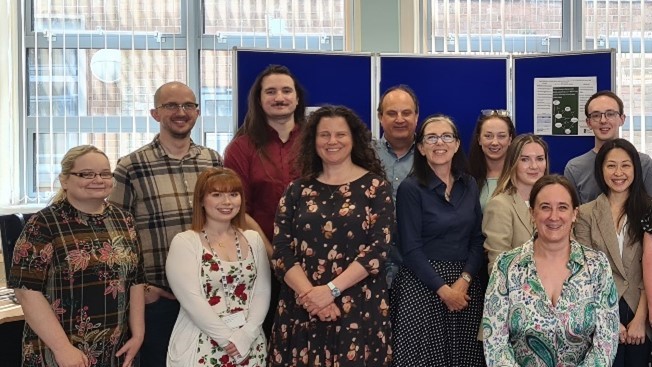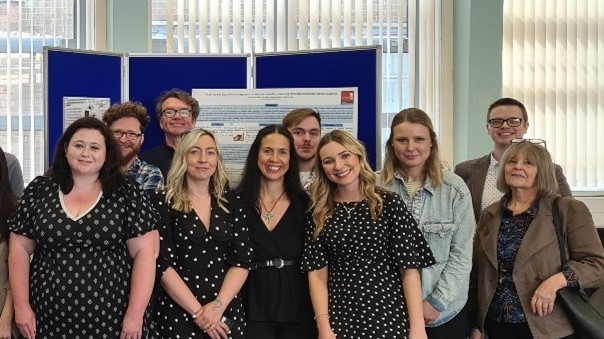Our Peter Macaulay writes about his recent publication on cyberbullying, looking at teachers’ perceptions of its severity and publicity, and how these influence their intervention behaviour in the school environment.
Why is this important?
Bullying in the school environment is a challenge that teachers have been expected to address within their role. There are growing fears about the rise of cyberbullying and its impact on children. My article in The Conversation suggests that children need help dealing with it and teachers have a role in addressing the issue.
The aim of this study is to
explore teachers’ perceptions towards cyberbullying, specifically addressing
the roles of publicity and severity. This is the first known study to address
teachers’ perceptions in this area.
What did our research
involve?
We recruited teachers from 10
schools in England, across primary (5 focus groups, 31 teachers), secondary (2
focus groups, 11 teachers), and college (3 focus groups, 21 teachers)
educational levels. A total of 63 teachers (10 males) participated across the
10 focus groups.
The focus groups explored teachers’ perceptions and responses towards cyberbullying, particularly around the roles of publicity and severity in cyberbullying. Prompt questions included: ‘Would you respond differently depending on how severe the cyberbullying act was, and why would you respond that way?’ and ‘What circumstances would you be more likely to intervene in an act of cyberbullying?’.
What were our main findings?
Three themes were identified
from the reflexive thematic analysis: (a) role of severity, (b) differential
roles of publicity, and (c) bystander intentions.
Theme 1: Role of Severity
We found teachers perceived
visual acts of cyberbullying as more severe, although the content of the act
was more important in determining perceived severity.
“I think
if it’s relentless as well. If it’s happened over and over again, then that
would be treated more seriously than if somebody had said one comment, it’s
still bad, but if its, more relentless then its more severe” (P7, focus group 4)
Differences in reported
management strategies according to the type of cyberbullying was also suggested
by primary school teachers.
“There’s
a difference, text-messaging, in which we would meet and do a cyberbullying
session and have a chat. But then that’s different to a photo being sent over
which is sexually explicit and actually needs a criminal investigation as well” (P6, focus group 5)
Theme 2: Differential Roles of Publicity
We found that teachers
tailored their response strategies across levels of publicity, using
discussion-based solutions for private incidents compared to whole school
strategies (e.g., assemblies) for cyberbullying incidents of wider publicity.
“[Public]
has the potential to literally go viral and to go global, but a WhatsApp
message between six friends, its semi-public. But, but more containable.
Somebody would have to step outside of that and share it elsewhere, to become
more public” (P5, focus group 2)
Although some primary
teachers respond immediately to public acts of cyberbullying due to the wider
audience and potential impact for the victim, other teachers suggested
cyberbullying perpetrated privately is just as important to address.
“Yeah, I
was just thinking like it might be a bit more, deep-seated if it’s just between
the two people and you might need to unpick it a bit more than something as
obvious as like a group and everybody’s just joined in, jumped on the bandwagon” (P2, focus group 4)
Theme 3: Bystander Intentions
We found that while most
teachers recognised the propensity for negative or positive bystander
intentions when victims are targeted in the public domain, primary teachers
suggested the challenge to support victims targeted privately.
“Although,
if its private it’s just between them, those two individuals, then nobody else
knows about it. If its public, yes, you’ve got lots of negative from other
people but there’s also the option to have support from other people as well.
Whereas if it’s just you and them, nobody else might know about it, nobody’s
there to help you” (P3,
focus group 5)
What do the findings mean for implications?
- Our findings suggest those in the educational community responsible for addressing cyberbullying should take a more cautious approach when interpreting cyberbullying.
- They also suggest that schools need to ensure all teachers respond to cyberbullying immediately, through appropriate reporting mechanisms. Teachers should also review the contextual information when managing different types of cyberbullying behaviours.
- Our findings suggest a need for strategies to mobilise bystander support in the online environment.
The Department of Psychology at Staffordshire University offers a range of undergraduate and postgraduate degrees in Psychology at the University’s £30 million Science Centre in Stoke-on-Trent. The department is home to the Staffordshire Centre for Psychological Research, a large and active group of psychologists, PhD students and researchers conducting work into a variety of psychological disciplines and topic areas.






















